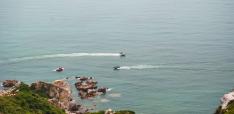The Case for Strengthening Indonesia–UAE Relations Through the Tropical Forest Forever Facility (TFFF)

Muhammad Zulfikar Rakhmat argues that Indonesia and the UAE can build a model for South‑South cooperation.
Indonesia is home to some of the planet’s most vital tropical forests, while the United Arab Emirates (UAE) has evolved into a global center for finance and climate ambition. Together, they have the potential to forge a groundbreaking partnership through the Tropical Forest Forever Facility (TFFF), a mechanism launched at COP28 in Dubai and poised to deliver measurable forest conservation finance by COP30 in November 2025.
TFFF is designed to channel investment returns into annual, results-based payouts—approximately US $4 per hectare of preserved moist broadleaf forest—while applying deductions if deforestation occurs. At least 20 percent of disbursements go directly to Indigenous Peoples and local communities. Governments from France, Germany, Norway, the UK, Singapore—and notably, the UAE—have publicly endorsed or signaled support.
The UAE’s embrace of TFFF reflects its broader environmental and financial ambition. At COP28, it launched ALTÉRRA, a US $30 billion climate fund aiming to mobilize $250 billion by 2030 and to direct investments into emerging markets and the Global South. Through this and other initiatives—including participation in multilateral and bilateral climate-finance councils—the UAE positions itself not just as a donor, but as an architectural partner in global climate finance design.
Indonesia and the UAE already collaborate formally across finance and climate. In mid-2024, they signed a memorandum of understanding covering public financial management, climate finance, and macroeconomic policy coordination, establishing a joint council for implementation. During high-level visits in 2025, ministers reaffirmed cooperation across renewable energy, food security, infrastructure, and investment transparency—all laying strong foundations for working together on forest finance.
To convert this momentum into a strategic Indonesia–UAE partnership under TFFF, both countries should work together to codesign financing instruments that reflect shared priorities. Indonesia could invite key UAE institutions—like the Abu Dhabi Fund for Development, Mubadala, or ALTÉRRA—to seed a Tropical Forest Trust or forest‑debt innovation vehicle whose capital markets performance underpins predictable, results-based payments tied to verified forest outcomes. Such structures would attract global private capital while giving UAE contributions fiscal impact beyond traditional philanthropy or aid.
Indonesia’s strength lies in its forest stewardship and emerging blended- and Islamic‑climate finance tools—from sovereign green sukuk to waqf-based conservation strategies. By demonstrating robust national monitoring, reporting and verification (MRV), transparent national disbursement systems, and a guarantee that 20 percent of funds reach local forest communities, Jakarta can reassure both civil society and investors that funds deliver equitable outcomes.
Critics of TFFF warn that per‑hectare payments may underestimate full ecosystem value and that national governments—not communities—often control funds. Indonesia and the UAE must jointly address these concerns. They could, for instance, agree to direct pathways for community benefit, adopt transparent capital flows, and publicize governance arrangements so funding does not bypass those protecting forests on the ground.
In the lead‑up to COP30 in Belém, Indonesia should approach the UAE not merely as a backer, but as a co‑designer of a climate‑finance innovation. High-level dialogues—via ASEAN–GCC forums, finance‑minister working groups, or bilateral mechanisms—can establish shared parameters: performance metrics, transparency protocols, safeguards, and equitable community share.
Such a partnership would reshape how emerging economies collaborate: Indonesia offers ecological stewardship and innovation in blended finance; the UAE provides scale, capital innovation, and credibility. Together, they could prove that protecting primary forests is not charity—it is investment in our planet’s future.
By working in concert through TFFF, Indonesia and the UAE can build a model for South‑South cooperation that draws in other tropical nations and Gulf partners. This approach transforms forest protection from a moral imperative into a strategic, results-driven alliance—empowering forest-rich nations and climate-capital centers alike to lead global climate solutions.
Muhammad Zulfikar Rakhmat is the Director of the China-Indonesia and Indonesia-MENA Desks at the Center of Economic and Law Studies (CELIOS) in Jakarta.
Photo by Rido Alwarno


